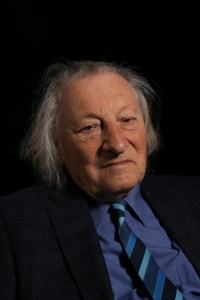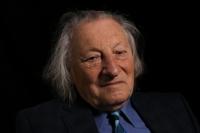Ambassador for Czech piano music
Download image
A pianist, music teacher and Czech music promoter Radoslav Kvapil was born on 15 March 1934 in Brno. He went to private piano classes to an important musicologist Ludvík Kundera since he was six years old. After the Secondary-school leaving exam at grammar school in 1952 he studied at Janáček Academy of Music and Performing Arts in the piano class of Ludvík Kundera. He started his musical career as a teacher at a conservatoire in Kroměřiž, however he soon made a breakthrough as a concert artist. He focused on piano works by Antoník Dvořák which made him famous abroad because he introduced so far little-known Dvořák´s piano compositions to a foreign audience. He recorded all the piano works by Dvořák for Supraphon, he later also discovered piano works by other Czech authors. He performed concerts in all the important world concert halls, such as London Royal Albert Hall, New York Carnegie Hall or Paris Théâtre des Champs-Élysées. In 1968, he participated in a group of independents called the Union of Czechoslovak Composers which was something like Club of Committed Independents. He also sat on the union’s rehabilitation committee, which was supposed to correct the crimes committed against musicians in the 1950s. He considered immigrating to Sweden in 1969 but at last he decided to stay with his family in Czechoslovakia. In Bechyně in the 1970s, he started to organize unofficial, anti-regime Meetings of friends of chamber music inspired by masterclasses which he had experienced in Great Britain. He founded the International Dvořák Society in 1999 and he also founded and is a chairman of the Czech branch of European Piano Teachers Association.

